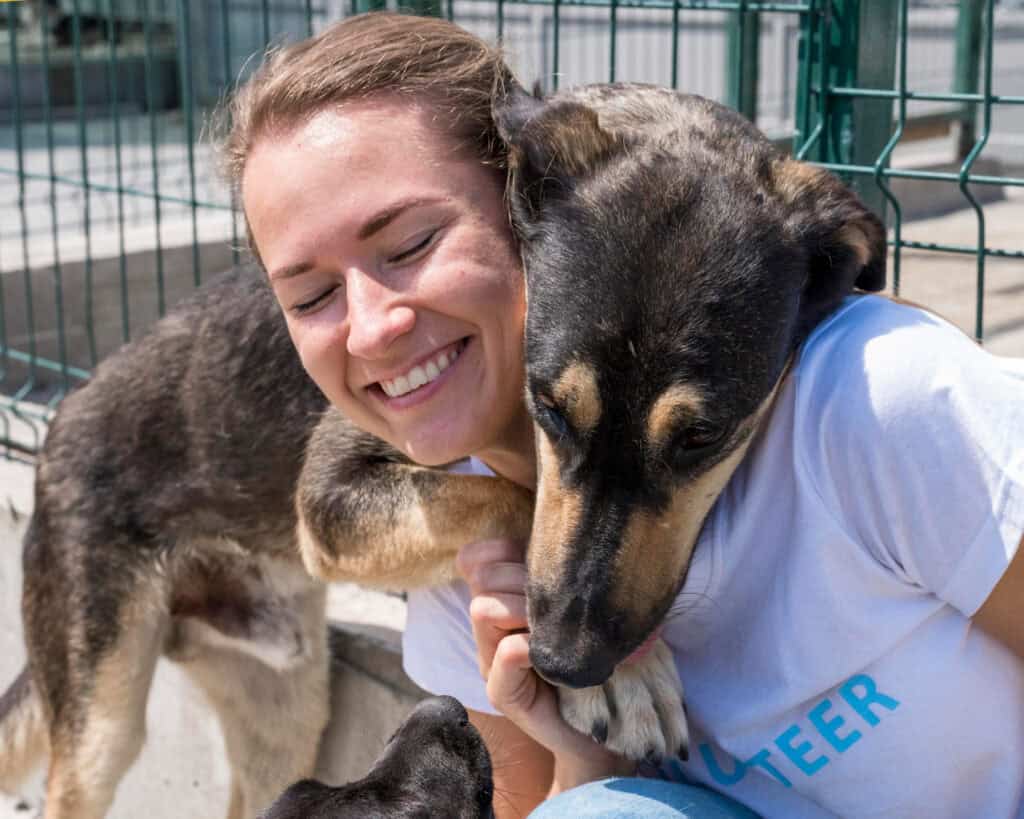Check how old is your pet in human years using our Pet Age Calculator.
Every year millions of animals find themselves in need of a loving home, and that’s where pet shelters come in.
These vital organizations not only provide a safe haven for abandoned and neglected animals but also play a crucial role in our communities.
They serve as a bridge between pets seeking forever homes and families ready to welcome them into their lives.
I’ve seen firsthand how shelters work tirelessly to promote animal welfare, offering resources like adoption services and educational programs.
They’re not just about rescuing animals; they’re about fostering a culture of compassion and responsibility. Understanding the importance of pet shelters can inspire us all to support their mission and make a difference in the lives of countless furry friends.
Table Of Contents
Why Are Pet Shelters Important: The Role of Pet Shelters in Society
Pet shelters play a critical role in supporting animal welfare and promoting responsible pet ownership. They serve as essential resources for communities to address issues of abandoned and neglected animals.
Providing Safe Havens for Animals
Pet shelters provide secure environments for abandoned, neglected, or abused animals. These facilities offer necessary care, including food, medical attention, and socialization, fostering recovery and rehabilitation.
By housing animals until they find forever homes, shelters protect vulnerable pets from harm and stress. Additionally, shelters often provide behavioral training, improving adoption success rates and ensuring pets thrive in their new homes.
Reducing Overpopulation
Pet shelters actively combat animal overpopulation through various strategies. They facilitate spay and neuter programs that prevent unplanned litters, reducing the number of animals entering shelters.
Educational initiatives raise awareness about responsible pet ownership, encouraging community members to spay or neuter their pets.
Adoption events further help manage overpopulation, offering homes to homeless animals and decreasing the demand for breeding.
This comprehensive approach not only saves lives but also promotes sustainable pet ownership practices within communities.
Benefits of Pet Shelters
Pet shelters play a significant role in animal welfare and community health. They provide crucial services that lead to positive outcomes for both pets and people.
Promoting Adoption
Promoting adoption is a primary function of pet shelters, saving countless lives by connecting animals with permanent homes.
Each adoption reduces overcrowding, which lowers the number of euthanized animals. In the U.S., approximately 2.7 million animals face euthanasia annually due to lack of homes.
Adopting from shelters proves to be cost-effective, as most animals are vaccinated, spayed or neutered, and microchipped before adoption.
Furthermore, evidence shows that fostering programs and temporary outings significantly elevate adoption rates for shelter dogs, actively enhancing the chances for pets to find loving families.
Offering Veterinary Care
Offering veterinary care is another essential aspect of pet shelters. Shelters provide necessary medical services, including treatment for sick or injured animals.
They also engage in spaying and neutering to prevent overpopulation and run trap-neuter-release (TNR) programs for feral cats.
These services support local wildlife by mitigating predation risks, promoting biodiversity. Additionally, shelters focus on rehabilitating aggressive or fearful dogs, which enhances safety and increases adoptability, thereby fostering a better community environment.
Community Impact of Pet Shelters
Pet shelters significantly impact communities by reducing stray animal populations and fostering a sense of responsibility among pet owners. Their contributions enhance both public safety and community welfare.
Supporting Local Families
Pet shelters enrich families through pet adoptions, providing companionship that enhances emotional well-being and reduces stress.
Pets strengthen social connections, as they encourage interactions among neighbors. Shelters create avenues for families to engage in responsible pet ownership while offering resources and support to ensure successful pet care, ultimately benefiting household dynamics and community spirit.
Educating the Public
Shelters play a crucial role in educating the public about responsible pet care, which encompasses spaying/neutering, vaccinations, nutrition, and behavior training.
They organize workshops and collaborate with schools to foster empathy towards animals, especially among children. This educational outreach leads to fewer animals surrendered to shelters and promotes sustainable pet populations.
With a well-informed community, pet ownership becomes a shared responsibility, strengthening community bonds and reducing strain on shelter resources.
How to Support Pet Shelters
Supporting pet shelters strengthens their crucial work in animal welfare. I can contribute effectively through volunteering and donations, as well as by participating in awareness campaigns.
Volunteering and Donations
Volunteering at a shelter enhances its operations and animal care. I can assist with animal handling, cleaning, event planning, or specialized programs like trap-neuter-return for feral cats.
Every hour spent makes a significant difference. Donations play a vital role in maintaining shelter functions. Financial support covers daily operational costs such as medical care, facility upgrades, and staff training.
Many shelters operate on tight budgets, often relying on community generosity to sustain their missions. Regular monetary contributions or fundraising efforts can help shelters provide better care and improve overall living conditions for animals.
Awareness Campaigns
Participating in awareness campaigns increases public understanding of pet adoption benefits and responsible pet ownership.
I can share information about the importance of adopting shelter animals rather than purchasing from breeders, which helps reduce overcrowding and saves lives.
Promoting local shelters through social media, community events, or local businesses fosters community involvement. Each conversation I have about the work of shelters contributes to building a compassionate culture towards animals in need.
Educating others also leads to more adoptions and support for shelters, ultimately creating a more humane community for all.
Key Takeaways
- Essential Safe Havens: Pet shelters provide crucial safe environments for abandoned and neglected animals, ensuring they receive necessary care until adopted.
- Combatting Overpopulation: By implementing spay and neuter programs and promoting responsible pet ownership, shelters help reduce animal overpopulation and manage the influx of homeless pets.
- Promoting Adoption: Shelters facilitate pet adoptions, significantly decreasing the number of euthanized animals and providing an affordable, fully-vetted option for families looking to adopt.
- Community Education: Pet shelters play a vital role in educating the public on responsible pet care, leading to healthier pet populations and stronger community bonds.
- Supporting Local Families: The companionship provided by adopted pets enhances emotional well-being, reduces stress, and fosters social connections within communities.
- Ways to Get Involved: Community support through volunteering, donations, and awareness campaigns is essential for shelters to continue their important work in animal welfare.
Conclusion
Pet shelters play a vital role in our communities by saving lives and promoting responsible pet ownership. They’re not just places for abandoned animals; they’re centers of compassion and education.
Supporting these shelters through volunteering or donations can make a significant difference.
Every adoption helps reduce the number of animals facing euthanasia and enriches families with loving companions. By fostering a culture of empathy and responsibility towards animals, we can create a better environment for both pets and people.
Let’s continue to champion the mission of pet shelters and work together to ensure every animal finds a safe and loving home.
Frequently Asked Questions
What is the main role of pet shelters?
Pet shelters provide safe homes for abandoned and neglected animals. They facilitate adoptions and promote animal welfare through educational programs, ensuring that vulnerable animals receive the care and training they need to find permanent homes.
How do pet shelters help reduce animal overpopulation?
Shelters combat animal overpopulation by offering spay and neuter programs, educating the public about responsible pet ownership, and providing resources that promote sustainable pet populations within communities.
What are the benefits of adopting from a shelter?
Adopting from shelters is cost-effective, as most animals come vaccinated, spayed or neutered, and microchipped. Adoption reduces overcrowding and saves lives, preventing euthanasia for millions of animals each year.
How can individuals support pet shelters?
Individuals can support pet shelters by volunteering, donating, or participating in awareness campaigns. Each contribution helps enhance shelter operations, care for animals, and promote responsible pet ownership within the community.
What educational programs do pet shelters offer?
Pet shelters provide educational programs focusing on responsible pet care, including the importance of vaccinations, spaying/neutering, and behavior training, which help reduce animal surrender rates and promote empathy toward animals.





